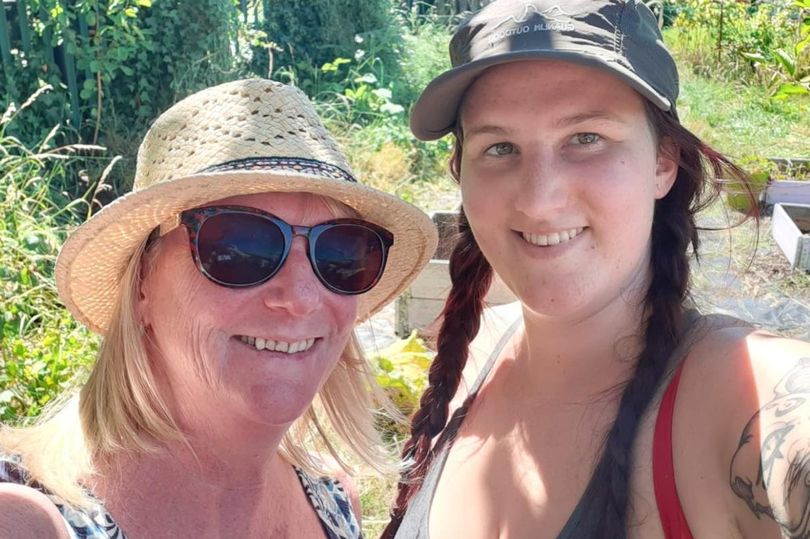A Tragic Case of Misdiagnosis and the Call for NHS Reform
The family of a young woman who died from a blood clot after being misdiagnosed with a viral illness is calling for urgent changes to the National Health Service (NHS) in the UK. Chloe Ellis, a 29-year-old wildlife officer, lost her life due to a critical failure in communication between different parts of the healthcare system.
Chloe had reported symptoms such as chest and back pain, along with breathlessness. During an online assessment with NHS 111, she disclosed that she was taking the Yasmin contraceptive pill to manage her endometriosis. The assessment identified a suspected pulmonary embolism, which is a life-threatening condition where a blood clot blocks the blood supply to the lungs. She was advised to go directly to a local emergency department. However, this crucial information was not shared with her or with the medical staff treating her at Dewsbury and District Hospital.
Instead, Chloe was misdiagnosed with a respiratory infection and discharged from the hospital. Three days later, she collapsed at home and died later that day at Leeds General Infirmary. The cause of her death was confirmed as a pulmonary embolism, with the underlying cause linked to her endometriosis and the use of the oral contraceptive pill.
Chloe’s mother, Jean Walker, expressed her grief and frustration, stating: “Chloe did everything right. She sought help and gave accurate information to the NHS 111 call handler. 111 identified a condition that can be fatal if left untreated, yet that information wasn’t shared with anyone, not even Chloe.”
A coroner, Oliver Longstaff, wrote to the West Yorkshire Integrated Care Board to prevent future deaths. He concluded that the failure to obtain Chloe’s full medical history at A&E, combined with the inaccessibility of her 111 online assessment, likely cost her life. If the medical staff had known about the medication she was taking, she should have been diagnosed with a pulmonary embolism and received life-saving treatment.
The coroner issued a Prevention of Future Deaths Report, highlighting the need for better access to NHS 111 assessments for emergency department clinicians. Unfortunately, the West Yorkshire Integrated Care Board has not previously commissioned accessibility to these assessments for local hospitals. This issue is not unique to this region, as practices vary across the UK regarding whether NHS 111 assessments are shared with A&E departments.
Chloe’s family is now campaigning for this to become standard practice, believing it could save lives. Her story highlights a broader issue within the NHS: services like 111, A&E, and GP practices often operate with limited visibility of each other’s assessments and interactions with patients.
Amy Fielding, a partner at Stewarts law firm and former nurse, has been working with Chloe’s family to raise awareness of this problem and urge the government to implement necessary changes quickly and consistently across the NHS. She emphasized the need for the current system to change, stating that if a suspected diagnosis can be passed directly to A&E, it would save an already overstretched emergency service significant time and resources.
She also pointed out that patients assume their records follow them, but this is not the case. Part of the problem is that A&E does not fall under the same ‘arm’ of the NHS as 111 and therefore relies on regional care boards to implement a system of information sharing.
Amy added that the government’s 10-year plan for the NHS should include action to ensure improved communication across all NHS urgent care services.
A Fundraising Walk in Chloe’s Memory
In memory of Chloe, a group of friends and family known as The Dozy Wanderers are undertaking a 213-mile fundraising walk from Ingleborough, finishing in Scarborough. The walk will take place from July 18-25 and will raise funds for The Yorkshire Wildlife Trust, where Chloe worked as a planning advocate.
The walk will involve passing through Paull Home Strays in Hull, a nature reserve that Chloe was instrumental in preserving against a planning application that threatened the local ecosystem. Chloe led a team advocating for the preservation of this habitat before a planning committee, leading to the refusal of the application.
Chloe was highly respected by her colleagues and remembered fondly for her knowledge and dedication to wildlife conservation. She also travelled to London in summer 2024 to take part in the Restore Nature Now march, calling on politicians to take action to restore nature and address climate change in the UK.
The fundraising walk will also support Dementia UK in memory of Chloe’s auntie and uncle, Christine and Tony Bairstow. The target of £15,000 will be shared between Dementia UK and The Yorkshire Wildlife Trust.


